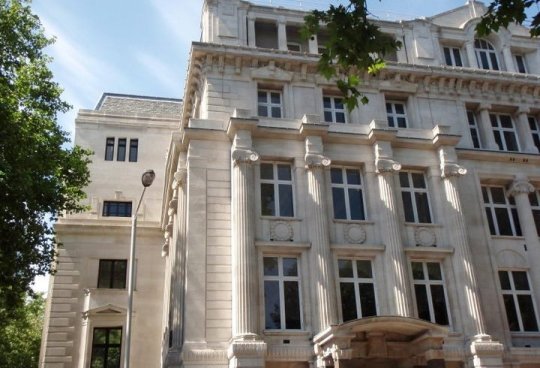The Royal College of General Practitioners (RCGP) is conducting a consultation about the College's collective position on 'assisted dying'.
The College's current position on the issue is that, with good palliative care, a change in legislation is not required.
However, last year the RCGP Council Chair Clare Gerada made it known that she personally favoured a move to a neutral position and proposed to the RCGP Council that they consult RCGP members on the matter.
The consultation comes just after the introduction of an 'Assisted Dying Bill' into the House of Lords by Lord Falconer on 15 May and just before a similar bill is introduced into the Scottish Parliament by Margo MacDonald MSP.
Only the College's 46,000 members can take part and are being asked two key questions:
1. When should the College, as a membership body, have a collective organisational view on an ethical issue, and when should it not?
This raises subsidiary questions of whether there are issues on which the College should not express a collective view, whether split opinions preclude a collective view and to what extent positions on ethical issues should be democratically mandated.
1.
2. What should the College's position be on assisted dying - in favour, opposed or neutral?
Taking a neutral position would mean that the RCGP would take a position that the legality of assisted dying is a matter for Parliament, on behalf of society, to decide, and is not an issue that the College should seek to influence.
RCGP members have been asked to consider implications of each of the three possible positions for patients, including the doctor-patient relationship, GPs as individual health professionals, the RCGP as a professional body, the health system and the RCGP in its policy making role.
The consultation will run until 9 October 2013, with a debate by the RCGP's governing Council expected in early 2014.
The RCGP adopted its current strong opposition to a change in the law in 2005 after substantial discussion and consultation with its Faculties and Members as follows:
'The RCGP believes that, with current improvement in palliative care, good clinical care can be provided within the existing legislation and that patients can die with dignity. A change in legislation is not required.'
It restated this position in 2011 saying that 'nothing has occurred since 2005 to alter or change the ethical issues around assisted dying'.
Eight reasons for RCGP members to strongly support the College's current policy:
- The majority of doctors are opposed to a change in the law. Opinion polls show an average of 65% doctors opposing the legalisation of assisted suicide and/or euthanasia with the remainder undecided or in favour. Palliative Medicine Physicians are 95% opposed and the Royal College of Physicians and British Geriatrics Society are officially opposed.
- Assisted suicide and euthanasia are contrary to all historic codes of medical ethics, including the Hippocratic Oath, the Declaration of Geneva, the International Code of Medical Ethics and the Statement of Marbella. Neutrality would be a quantum change for the profession and against the international tide.
- Neutrality on this particular issue would give it a status that no other issue enjoys. Doctors, quite understandably, are strongly opinionated and also have a responsibility to lead. The RCGP is a democratic body which takes clear positions on a whole variety of health and health-related issues. Why should assisted suicide and euthanasia enjoy a position which no other issue shares, especially when doctors will actually be the ones carrying it out?
- Dropping medical opposition to the legalisation of assisted suicide and euthanasia at a time of economic recession could be highly dangerous. Many families and the NHS itself are under huge financial strain and the pressure vulnerable people might face to end their lives so as not to be a financial (or emotional) burden on others is potentially immense.
- Were the RCGP to drop its opposition, and as a consequence a law were to be passed, it would also leave the medical profession hugely divided at a time when, perhaps, more than any other time in British history, we need to be united as advocates for our patients and for the highest priorities in a struggling health service.
- Going neutral would leave the RCGP gagged with no collective voice. The British Medical Association (BMA) rejected an attempt to move it neutral at its 2012 annual representative meeting saying that neutrality was the worst of all positions. This was based on bitter experience. When the BMA took a neutral position for a year in 2005/2006 we saw huge pressure to change the law by way of the Joffe Bill. Throughout that crucial debate, which had the potential of changing the shape of medicine in this country, the BMA was forced to remain silent and took no part in the debate.
- Going neutral would instead play into the hands of a campaign led by a small pressure group with a strong political agenda. Healthcare Professionals for Assisted Dying (HPAD), which is affiliated to the pressure group 'Dignity in Dying' (formerly the Voluntary Euthanasia Society) has only 520 supporters, representing fewer than 0.25% of Britain's 240,000 doctors. But in 2012 they flooded the BMA ARM with no less than nine motions calling for the association to go neutral in an attempt to silence medical opposition ahead of new bills being introduced to parliament in 2013.
- The RCGP has been historically opposed to a change in the law on assisted suicide and euthanasia for good reasons. These reasons have not changed.
Going neutral on assisted dying would be inappropriate, undemocratic and potentially highly dangerous. It would also be playing into the hands of a small unrepresentative pressure group and giving an advantage to only one side of the debate. Furthermore it would communicate confused messages to the public at a critical time and divide the profession at a time when a united doctors' voice is needed more than ever.
Picture credit: J Trend Hill (Creative Commons)







